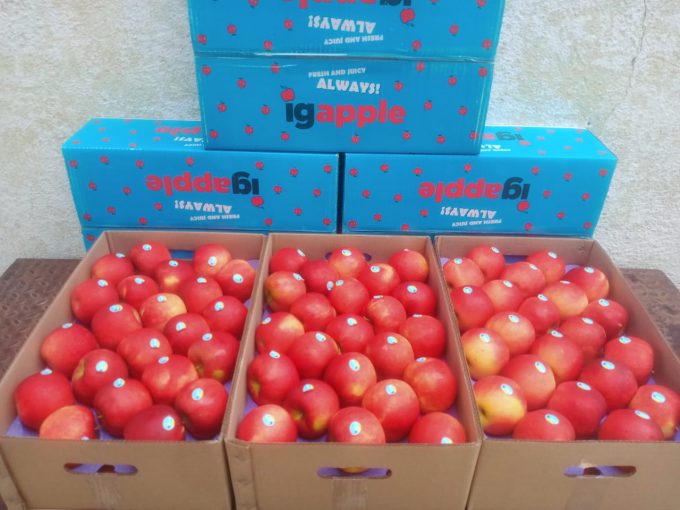Cooling demand increases warehousing vacancies, with rents inching down
Cooling demand has ended the long run of increasing warehousing costs and nudged the average ...

India’s perishables trade with the US is seeing significant traction, especially fruit, after both nations agreed to lift retaliatory tariffs implemented amid evolving geopolitical dynamics.
The more-conducive environment seems to be yielding discernible green shoots particularly for the US fresh apple flow to the Indian market.
An additional 20% import duty imposed in 2019 had proved a significant trade barrier, but last June New Delhi removed the duty burden, in a reciprocal move, and paved the way for bilateral trade expansion.
According to new data from the US trade sources, US apple shipments to India since September have hit some 765,000 40lb cartons, compared with just 9,000 reported for September to December 2022.
Indeed, after the imposition of the 20% customs duty, India’s fresh apple imports by value crashed from $145.2m in fiscal 2018-19 to $5.27m in 2022-23, government data showed.
“We are seeing success in regaining our number-two market,” said Jim Bair, president and CEO of the US Apple Association.
“Importantly, the [Indian] purchases are not only lower-cost varieties, but also include higher-value produce like Fuji, Gala, Granny Smith and others,” he added.
IG International, a leading Mumbai-based fresh fruit importer, has also struck an upbeat tone on the market outlook.
“The apple movement from the US has shown a sharp increase, as the import duty is now reduced by 20%,” Tarun Arora, director of IG International, told The Loadstar.
“US apples have always been a top pick for Indian consumers,” said Mr Arora.
Jitendra Srivastava, CEO of Mumbai-based freight forwarder Triton Logistics & Maritime, told The Loadstar: “There is strong demand for fresh Washington apples in India, as prices became more competitive.”
From a supply chain context, even more significant is that much of this increased trade has taken the ocean route, an estimated 9,000 nautical mile journey, thanks to hi-tech-enabled temperature-controlled cargo solutions offered by the major container carriers.
And Mr Bair noted: “For our apples to arrive with superior quality after an ocean voyage and yet still be affordable is a miracle of modern US agriculture.”
But, with longer transits and soaring freight rates linked to the Red Sea crisis, concerns are emerging among Indian fruit importers and traders. Ships transiting around southern Africa are taking 10 to 15 days longer, on average, hurting reefer trade the most.
Vineet Malhotra, co-founder and director at Mumbai-based Kale Logistics Solutions, told The Loadstar: “Washington apple imports to India recently began in full swing, but due to the Red Sea crisis, freight costs have gone up by 70%, making Indians pay higher commodity prices.”
Meanwhile, India has begun exporting its pomegranates to the US, helped by the removal of US restrictions that had halted this trade.
A trial consignment was airfreighted this month and Indian fruit exporters are eyeing an opportunity to regain a respectable share of the US import market for the fruit.
According to industry sources, opening additional irradiation facilities to meet quality check criteria laid out by potential importing nations, especially the US, is helping India’s perishables trade boost.
While those are positive signs, a prolonged shipping crisis in and around the Red Sea route will undoubtedly cut into Indian exporters’ trade aspirations.
You can contact the writer at [email protected].
Comment on this article